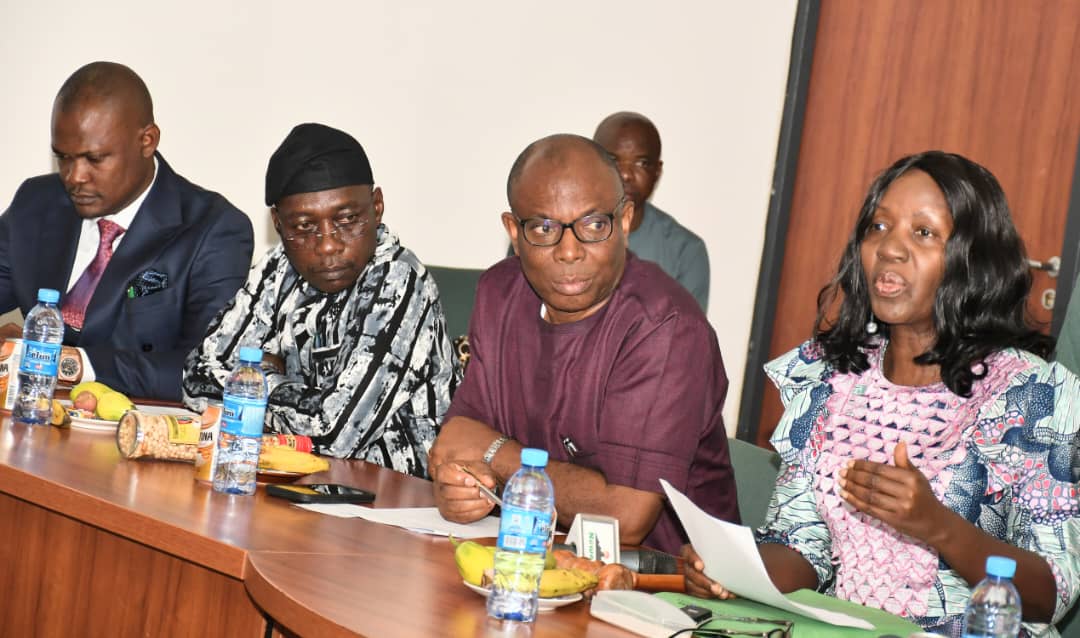The Nigerian House of Representatives has moved to prevent another ceding of Nigeria’s territory to Cameroon.
Following different motions on the floor of the House by different members from most boundary states, an ad hoc committee was set up to investigate the boundary disputes.
The Chairman House of Representatives Ad-Hoc Committee on International Boundary Dispute Between Nigeria and Cameroon, Benni Lar said that “the committed hopes to find lasting solution to the issues.”
The committee directed that the demarcation exercise to cede Sina Area in Michika Local Government Area of Adamawa State to the Republic of Cameroon be halted immediately.
Lar said, “Due to incessant incursion into Nigerian territory by terrorists from neighbouring Cameroon over disputed territories, the hearing has become important since the communities in contention are Nigeria’s own.”
The hearing was also to assess the role of the military and para-military and security agencies to safeguard the borders and territorial integrity of the country.

In attendance at the hearing were the Director General of the National Boundary Commission, Adamu Adaji; a representative from Sina Area, Adamu Kamale; the Solicitor General of the Federation, Beatrice Jedy-Agba who represented the Attorney General; as well as representatives of the security agencies.
Lar said; “We have to continue this engagement with the relevant community and the boundary commission and come up with a solution. Let us go on a fact-finding mission and then we will intervene. The communities have a right and their right must be considered.
“This demarcation exercise has to be put on hold until the disputes are resolved. It should be halted pending the resolution of this committee. We would visit Adamawa and come up with a comprehensive report.”
She further said; “We did the first phase of this similar for the DANARE-BIAJUA AXIS of Cross River State and as a fall out of that, the Speaker through a request by Dauda Nyampa included this SINA AREA to the Committee’s terms of reference.
“As usual, we are to interact on the aspects of the likely ceding of SINA to Cameroon thereafter we pay an ‘on-the-spot fact-finding visit’ to Adamawa, of which we have notified the Executive Governor.”
“The second aspect of this interactive briefing, which is very critical and crucial is on the role of the military, the para-military, and the security agencies towards safeguarding the borders & territorial integrity of Nigeria: this briefing is to leverage inputs from the guarantors of our National Security-the Army and various Security Agencies because in the Committee’s last visit to Cross River state, we discovered lack of Security posts or barracks of any sort along our land borders whereas such is obtained across the Cameroon side of borders, hence, the necessity of this interactive session with our Security formations,” Lar said.
The Director General of the National Boundaries Commission, Mr Adamu Adaji in his submissions blamed the disagreements in the disputed territories on a lack of understanding of international laws by members of the affected Communities which did not sit well with the representative of the aggrieved community who see his comments and actions of the commission as unpatriotic.
Mr Adaji said that “the dispute followed the implementation of the ruling of the International Court of Justice.”
The Director General noted that all efforts to resolve the issue have proved abortive.
He said that “the demarcation exercise was being carried out in line with a ruling of the International Court of Justice.”
Mr Adaji said so far the sub-commission on demarcation has placed a total of 2, 214 pillars along the boundary between Nigeria and Cameroon.
He said; “The Adamawa State sector of the boundary between Nigeria and Cameroon as decided by the International Court of Justice is based on treaties and agreements that had been entered into by colonial masters. The courts upheld these treaties and agreements and ruled that they be used to re-establish the boundary. It is not a new boundary. It is a boundary that has been existing and some documents show the fact these boundaries have been existing. What the court ruled is that go and use this document to re-establish the boundary as it has always been recognised.”
The representative of Representative of the affected Communities, Mr. Kamale Adamu said that the community has existed for thousands of years in Nigeria and they are not willing to become Cameroonians.
Mr Adamu said, “The disputed area was a Nigerian territory and was never a settlement.”
He said the community was never considered in the entire demarcation process.
“From Lake Chad to Bakassi, the ICJ ruled on several communities based on different criteria. The criteria used for Bakassi are not the same used for Michika local government. In our own case, the ruling stated clearly that it is the watershed….and if the watershed is to be used, it means any territory that is on the flank to the left as you are coming from Lake Chad falls into Cameroon and any community to the right falls to Nigeria because both countries had an agreement in the ruling. Cameroon’s position then was that the foot of the mountain was to be adopted as the borderline. Nigeria averred that it must be the watershed and in that case, Nigeria won. The court made a pronouncement on Nigerian submission that it is the watershed that should be used,” he said.

Members of the committee were also not satisfied with the response of the commission and the Attorney Generals Office as they suggested alternative means to resolving the dispute.
A member of the committed, Awaji-Inombek Abiante asked why the National Boundaries Commission was in a hurry to cedar Nigerian communities to Cameroon.
Present at the hearing were the Army, Air force, Navy, NSCDC, Customs, Immigration, and the DSS.
The committee is expected to submit its report to the house for further legislative action after a one-the-spot assessment of the affected area.




You must be logged in to post a comment.